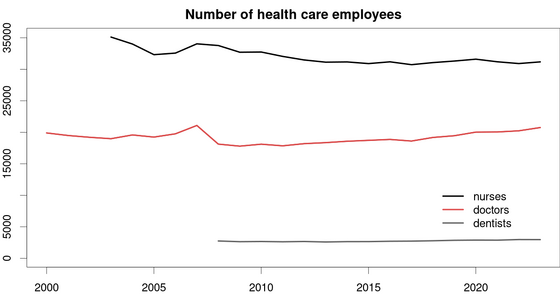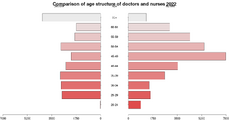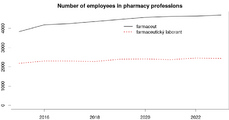- About us»
- Net income calculator»
- Population aging»
-
-
- Unemployment structure in the Visegrad region
- Development in least developed regions
- Detailed statistics of least developed regions in Slovakia
- Statistics of the least developed regions in Slovakia
-
- Average wage
- Material need benefits
- Meal allowance
- Counties of Slovakia
- Inflation
- Living and Subsistence Minimum
- Unemployment of Czechia and Slovakia
- NACE Classification
-
- Life expectancy
- Gender differences
- Youth unemployment and NEET
- Minimum wage in EU
- Unemployment rates of different age groups
- Share of salaries on GDP
- Long term unemployment
- NEET
- Unemployment rate
- Percentage of employees ususally working at nights
- Employment rate
-
- Bratislava and surroundings
- Kopanice
- Danube river
- lower Vah river
- middle Vár river
- upper Nitra river
- lower Nitra river
- Mining cities
- Kysuce a Orava
- upper Vah river - Liptov
- Spiš cities
- upper Hron river
- Juhoslovenská kotlina
- Košice fold and Torysa river
- upper Zemplín
- lower Zemplín
- EU regions
- NUTS3 regions of Slovakia
- LAU1 dataset
-
-
- Projects and activities
- Inclusive growth»
- Good work
- Project SKRS
- Social system – reality and vision
- Library
-
- Education of unemployed
- Young unemployed not taking part in education
- Proposal to change the system of education funding
- News»
- Contact
Number of health care employees

This graph shows an increase of the number of doctors in Slovak health care. This is partially a result of older doctors' decisions not to enter retirement. The decrease is visible mainly in the occupation of nurses. Number of dentists is stable at around 2700.
Continuous decrease of nurses since 2008 will worsen health care of ageing population. Smaller increase of doctors will not make situation in health care sector in Slovakia better.
| rok | dentists | doctors | nurses | total |
|---|---|---|---|---|
| 2000 | 19 894 | |||
| 2001 | 19 489 | |||
| 2002 | 19 205 | |||
| 2003 | 18 981 | 35 113 | ||
| 2004 | 19 577 | 34 007 | ||
| 2005 | 19 237 | 32 319 | ||
| 2006 | 19 754 | 32 568 | ||
| 2007 | 21 081 | 34 040 | ||
| 2008 | 2745 | 18 121 | 33 772 | 54 638 |
| 2009 | 2633 | 17 798 | 32 705 | 53 136 |
| 2010 | 2663 | 18 110 | 32 739 | 53 512 |
| 2011 | 2618 | 17 849 | 32 043 | 52 510 |
| 2012 | 2665 | 18 193 | 31 478 | 52 336 |
| 2013 | 2586 | 18 355 | 31 128 | 52 069 |
| 2014 | 2642 | 18 574 | 31 166 | 52 382 |
| 2015 | 2647 | 18 719 | 30 904 | 52 270 |
| 2016 | 2701 | 18 864 | 31 183 | 52 748 |
| 2017 | 2723 | 18 608 | 30 732 | 52 063 |
| 2018 | 2779 | 19 178 | 31 061 | 53 018 |
| 2019 | 2853 | 19 454 | 31 309 | 53 616 |
| 2020 | 2887 | 20 026 | 31 604 | 54 517 |
| 2021 | 2875 | 20 047 | 31 190 | 54 112 |
| 2022 | 2972 | 20 234 | 30 910 | 54 116 |
| 2023 | 2961 | 20 753 | 31 174 | 54 888 |
| 2024 | 2966 | 21 403 | 31 395 | 55 764 |
| Mean | 19 260 |
Suggested citation: Michal Páleník: 30 graphs on ageing - Number of health care employees, IZ Bratislava, retrieved from: https://www.iz.sk/30-graphs-on-aging/number-of-health-care-employees, doi:10.5281/zenodo.6079128
 Tento článok je súčasťou projektu Politiky zamestnanosti realizovaného Inštitútom zamestnanosti. Tento projekt je podporený z Európskeho sociálneho fondu v rámci OP EVS.
Tento článok je súčasťou projektu Politiky zamestnanosti realizovaného Inštitútom zamestnanosti. Tento projekt je podporený z Európskeho sociálneho fondu v rámci OP EVS.

Doctors
How does the structure and age of doctors change? How did the structure of medicine students change?. . .
Similar articles
Age structure of doctors, Age structure of doctors by founder, Comparison of age structure of doctors, Age structure of doctors in regions, Number of medicine students, Comparison of age structure of nurses and doctors, Doctors, The impact of aging on the health care sector in Slovakia – forecast of demand and supply until 2030 .pdf


 Share
Share Facebook
Facebook Twitter
Twitter News
News